I admit, I am not a good regional geographer in the classical sense of Geography. I cannot tell you names of countries on a blank map. I am bad at reading maps and have no sense of direction. Even though I finally figured out Korea is really a peninsular attached to China, I am not really sure which part of Malaysia Negri Sembilan is. Yes, I am very much ashame of myself. What happened to the days in secondary school when we quizzed each other on the names of major and minor tectonic plates and continents before the exams? There was a time when I could even correctly identify all the states on the map of USA.
Thus, when I read this CNN report (CNN: Study: Geography Greek to young Americans, 2 May 2006) on a Geographic Literacy Study done by the National Geographic on 510 American youths aged 18-24 where "88 percent of those questioned could not find Afghanistan on a map", I realized, geez, I have no idea where Afghanistan is on the map either. It's amazing I could even spell its name without the aid of spellcheck!
How could I possibly graduate with a degree in Geography if I do not brush up on my Geography right? Therefore, it is with utmost urgency that I quickly inform myself as to the Geography of the Middle East and South Asia."The study, which surveyed 510 young Americans from December 17 to January 20, showed that 88 percent of those questioned could not find Afghanistan on a map of Asia despite widespread coverage of the U.S.-led overthrow of the Taliban in 2001 and the political rebirth of the country."
Do you know where Afghanistan is?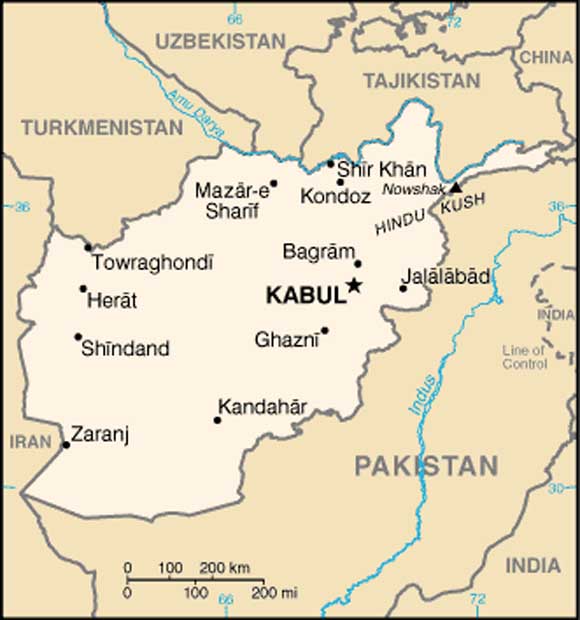
Afghanistan is between Pakistan and Iran, and south of the previous Soviet Union that has since become independent states such as Uzbekistan, Tajikistan and Turkmenistan. As you can see, it even shares a slight border with China! Looking at Pakistan, you should be able to guess India is nearby what with all that talk about the Pakistan-India Kashmir border. In fact, not too long ago, the Pakistan earthquake was right at this contested border.
"Two-thirds [of the respondents] didn't know that the earthquake that killed 70,000 people in October 2005 occurred in Pakistan."Of course when I think about India I would think of Nepal and the below map would give a clear overview of South Asia or the Indian Subcontinent.
"Forty-seven percent could not find the Indian subcontinent on a map of Asia."
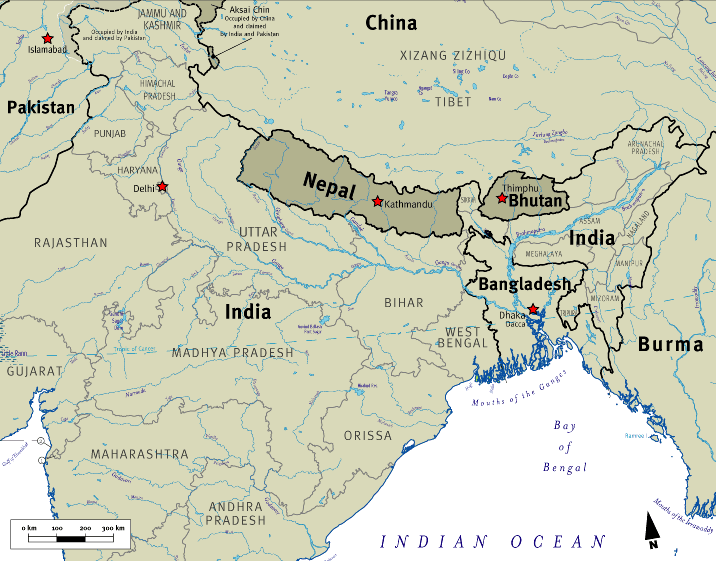
Click for enlarged image.
Really you know the "Middle East" isn't all that far off. If you continue west of Iran (refer to the first map; Iran is west of Afghanistan), Iraq is really just southwest of Iran!
"Six in 10 could not find Iraq on a map of the Middle East."

This map (above) cannot be clearer as to the location of the war zone and how these countries were so easily embroiled in the same fight due to the proximity to one another. It is perhaps not that hard to imagine after looking at these maps that Saudi Arabia, the land of sheiks and all of the Arabian fantasies, is just south of iraq, land of mister saddam. Look, Kuwait and Iran is just round the corner. That really explained a lot.
"In the Middle East, 63 percent could not find Iraq or Saudi Arabia on a map, and 75 percent could not point out Iran or Israel. Forty-four percent couldn't find any one of those four countries."
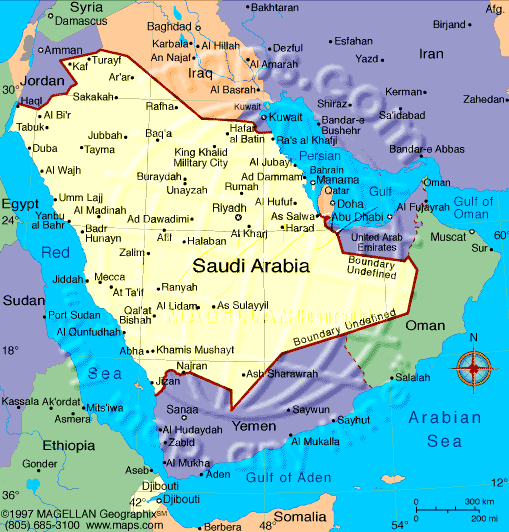
It was especially interesting for me to look at this above map and find Yemen on the map. When we were kids, there were prepacked "exotic" stamps for collection and I always thought the Yemen stamps were a from an imaginary country, made to look exotic to cheat the money of us lil kids. Then I found out it was a real country what with my sister always travelling there. Indeed, it's actually just south of Saudi Arabia and not in Africa! Although, if you look carefully, Ethiopia is just across the Red Sea, below Sudan and Eygpt!
Did you know Eygpt is really in the North of the African continent and that Africa is really not a country, but a continent?
"Seventy-five percent were unable to locate Israel on a map of the Middle East."
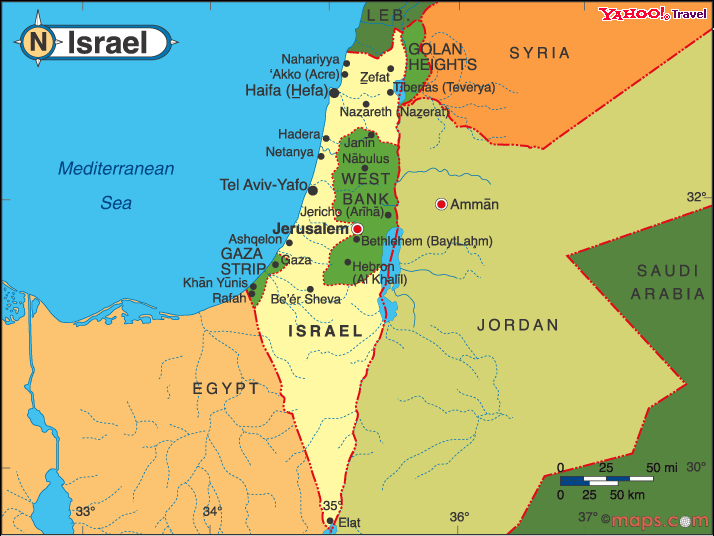
OK, I admit that despite reading a paper on Palestinian Merchant Market and writing in my exam as if I actually know that Palestine is not an actual political state in today's world but really a part of Israel, I cannot say I actually know where Israel is! Did you?
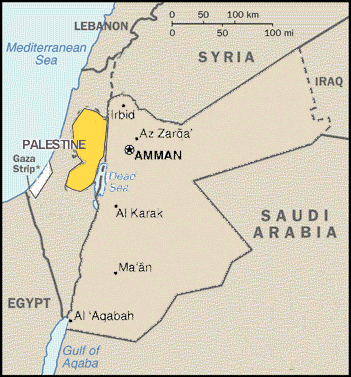
So how many of those countries could you locate prior to this crash course in Middle East Geography?
Now that you've attended Monkey's crash course in Geography of the middle east, try this CNN Geography Quiz and I can assure you that you will be able to get all the questions in the beginner quiz, possibly half the answers in the intermediate quiz and none at all in the advanced quiz! I should know because that's essentially how well I scored. Ah well, I guess it's back to the atlas!
Stay tuned for Part II for a crash course in US geography and more demythifying answers to the Geography Literacy study. Psst... You might need Part II if you weren't able to answer some of the questions in the CNN Quiz!
Technorati Tags:
Geography

 I can be contacted at
I can be contacted at 







2 comments:
I couldnt do some of the questions on North/South America, esp the ones on States of American. I got 4/6 for beginner. 4/6 for intermediate. 4/5 for advanced.
;)
i got 6/6 for beginner, 5/6 for intermediate (confused about the soviet block) and 3/5 for advance (not so sure about the order of the small countries in south america and middle africa!
Post a Comment